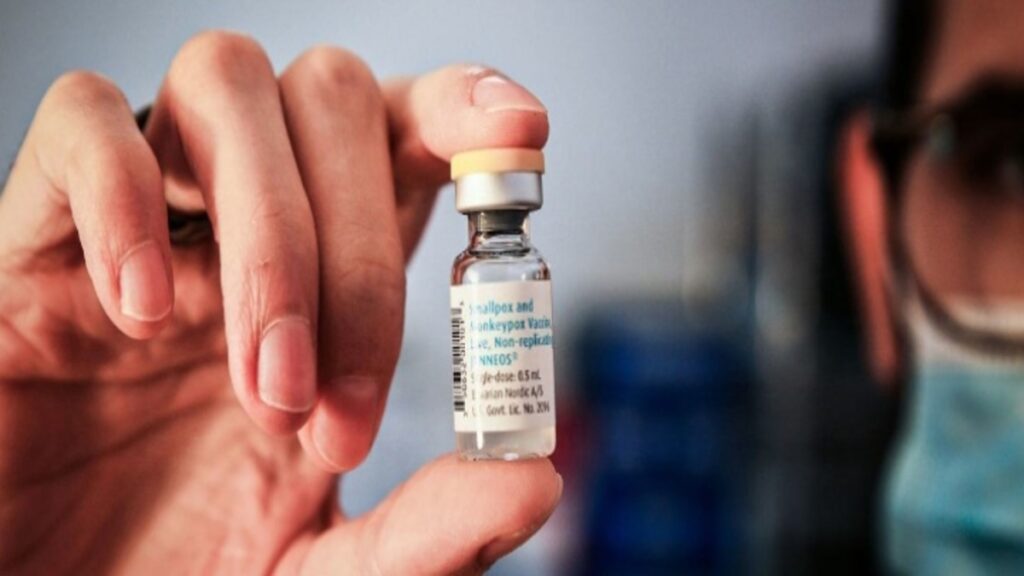Kenya is set to launch its first-ever Mpox vaccination campaign in December 2024, a timely response to the spread of the virus across Africa and the recent confirmation of a case within the country. This initiative, spearheaded by the Ministry of Health, comes amid growing concerns over the virus’s rapid spread and the increasing urgency for preventive measures.
The Ministry of Health, responsible for the campaign, has coordinated with international partners to secure vaccine doses. Mary Muthoni, the Principal Secretary for Public Health, affirmed that the government would receive vaccine shipments through the Centres for Disease Control (CDC) and other global efforts.

“As a country, we may not have seen an increase in the number,” Muthoni noted.
“However, our neighbours are still having some cases, and it is important to note that we are not out of the woods.”
Mpox, previously known as monkeypox, has resurfaced as a significant public health concern in various African nations. The virus, a cousin to smallpox, spreads through close contact and can cause a range of symptoms from fever to rash and body aches. The Kenyan government aims to protect vulnerable populations, particularly those in high-risk areas, with this vaccination rollout.
The vaccination campaign will begin in December, with the first batch of doses expected shortly before the launch. However, the Ministry has highlighted a shortage in vaccine availability, as only 5.6 million doses have been allocated for the entire African continent.
“The demand is far higher than what’s available,” Muthoni explained,
“but we are doing our best to ensure that those at highest risk get the first priority.”
The vaccination campaign will focus on counties with high travel activity and areas close to Kenya’s borders. Targeted regions include Taita Taveta, Busia, and Mombasa, where increased surveillance measures have already been established. To bolster this, the Ministry has screened 1.5 million travelers at border points, a vital component of its strategy to detect and contain potential cases.
To strengthen Kenya’s response, Muthoni revealed that the Ministry has increased its border and port surveillance, with thorough screenings at all points of entry.
“We are ensuring that all our ports of entry are manned properly,” she said,
“so that we can control any potential cases from entering the country.”
This layered approach aims to identify and manage Mpox risks early, preventing the virus from taking hold within the population. Dr Sultani Matendechero, Kenya’s Deputy Health Director General, commended the measures, expressing confidence in the government’s ability to protect public health through comprehensive surveillance and vaccination.
“We are on the right track in managing Mpox,” he stated,
“and the partnerships we have established will further enhance our preparedness and response.”
The vaccination drive is also a response to the World Health Organization’s (WHO) declaration of Mpox as a public health emergency of international concern. Across Africa, approximately 9,000 of the 45,000 reported cases in recent months have been confirmed, underscoring the urgency for coordinated, proactive measures.
WHO representatives emphasised the need for swift action against Mpox, highlighting the virus’s potential for spread through close contacts and sexual networks.
“Any further delay is untenable,” they stressed,
“as the virus continues to pose a significant risk.”
Mary Muthoni echoed this, reminding Kenyans of the importance of remaining cautious and vigilant.
“We must still remain very vigilant so that Mpox is not going to be with us here in the long run,” she said,
noting that the current campaign will work as a preventive measure against future outbreaks.
In addition to the vaccinations, Kenya’s Mpox response includes extensive public health education and ongoing training for healthcare workers. Health officials are urging citizens to follow safety protocols and get vaccinated once the campaign begins, helping to foster a shared responsibility for public health.
The Ministry is working with community leaders and healthcare providers to ensure clear communication and encourage adherence to preventive practices. Training programmes for healthcare workers will also cover Mpox prevention and control measures, preparing them to handle any cases that may arise.
Kenya’s approach may serve as a blueprint for other African nations facing similar challenges. By prioritising high-risk populations, strengthening border controls, and securing international partnerships, Kenya is setting an example in tackling a viral threat with broad public health implications.
This vaccination campaign is not only a response to an immediate risk but also a step towards long-term preparedness. Kenya’s efforts represent a commitment to safeguarding its population and preventing future Mpox outbreaks.



















